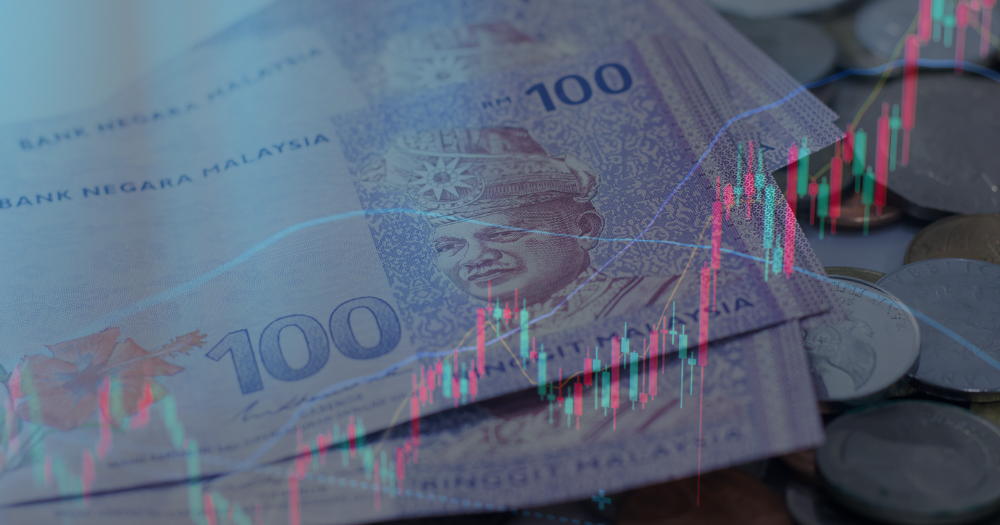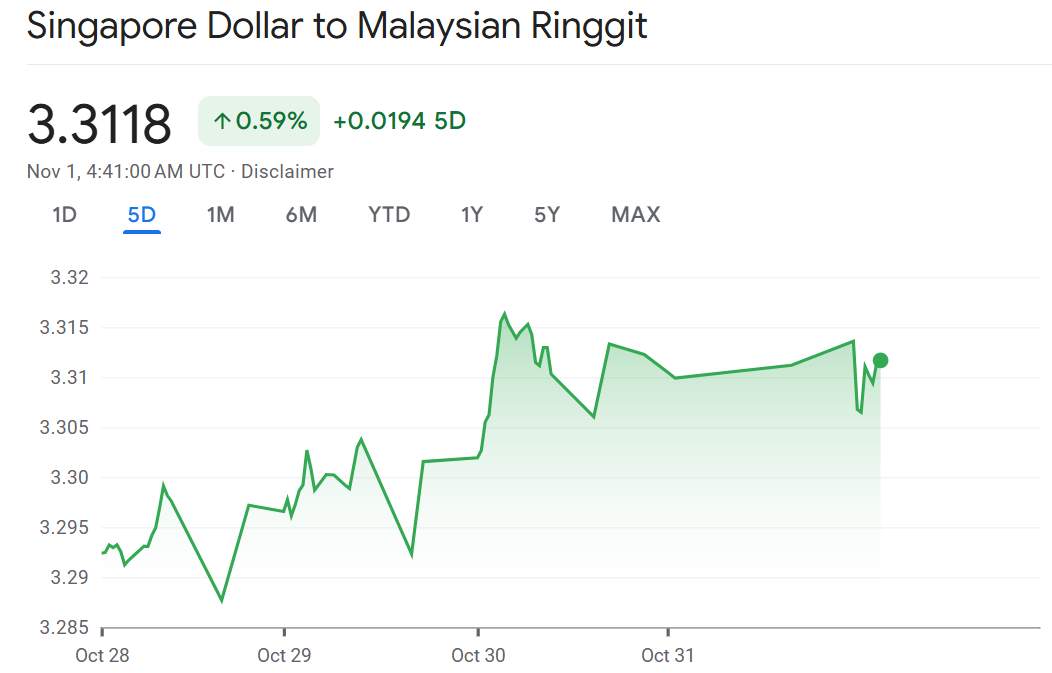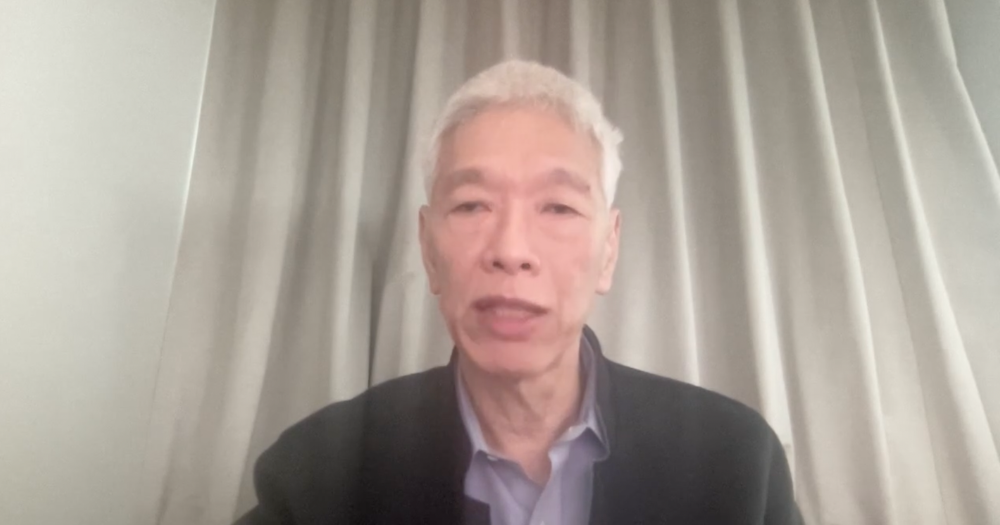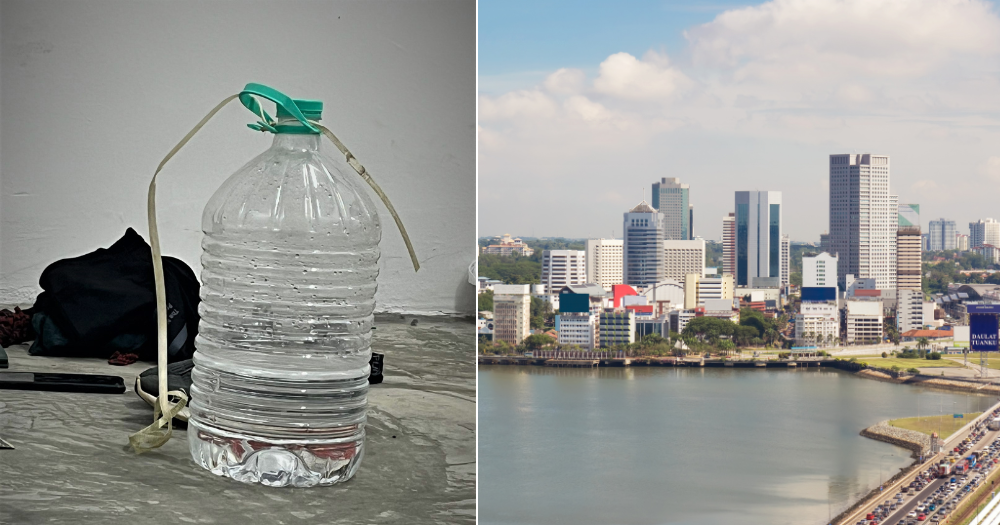M'sia ringgit set for biggest decline in 9 years over US election concerns
The ringgit is partly a victim of its own success when it strengthened by 14 per cent against the U.S. dollar recently.

The Malaysia ringgit is set to experience its biggest-ever decline in nine years since 2015 as traders are cutting back on risk assets amidst concerns over the U.S. presidential election.
According to Bloomberg, the ringgit declined by 6 per cent for the month of October, and traded at a rate of RM4.39 to US$1 on Oct. 30.
In addition, the ringgit has weakened against the Singapore dollar, reaching a rate of RM3.316 at one point on Oct. 30.
 Screenshot via Google
Screenshot via Google
The Edge Malaysia reported that the ringgit has also been weighed down by an unexpected decline in Malaysia's trade exports, as well as a widening trade surplus.
Bloomberg: Ringgit partly a victim of its own success
Bloomberg further reported that while the U.S. dollar has been strengthening against Asian currencies, the ringgit is also partly a victim of its own success.
During the third quarter of 2024, the ringgit was Asia's best performing currency as it had appreciated by 14 per cent against the US dollar.
This meant there would be room for correction in October, a currency strategist at OCBC Bank, Christopher Wong, was quoted as saying.
Wong also cited the ringgit's sensitivity to the Japanese yen and Chinese yuan.
The yen is the only currency that declined at an even worse rate than the ringgit, by 6.3 per cent against the U.S. dollar, while the yuan depreciated by about 2 per cent against the U.S. dollar.
A senior currency analyst at MUFG Bank, Michael Wan, was quoted by The Edge Malaysiaas saying:
"US assets and the dollar are still preeminent and that's certainly one of the major drivers around currencies, and with that the relative attractiveness of different assets.
But if China were to put out meaningful stimulus, or if stories such as the AI chip boom or semiconductor developments gain limelight — that could also change the calculus somewhat in terms of the relative attractiveness of Asian assets."
The ringgit will strengthen should the Democratic presidential candidate, Kamala Harris, win the U.S. elections, as this would mean a lower risk of tariffs that could hurt Asian economies, analysts at OCBC and MUFG Bank have also predicted.
Top photo via Canva
MORE STORIES




















